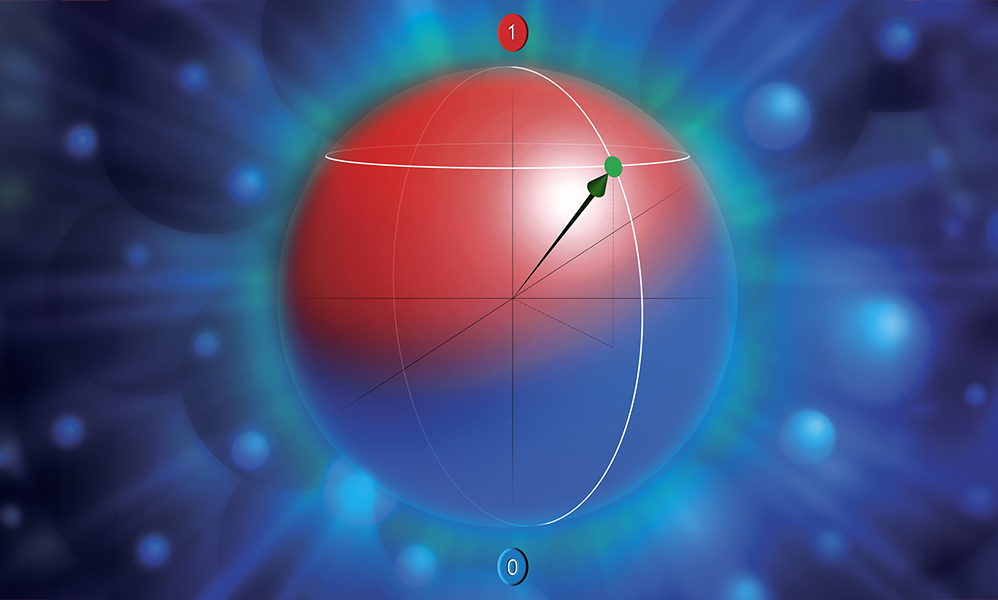Intro
In today's world, digital computers are everywhere, from our pockets to the cold void of space. However, a new generation of computers that are faster and better are starting to emerge. These are quantum computers, and when they come out, they will change the world in ways that are unimaginable today. But the question is, how? How will this new generation of computers change the world? That is the question that we will answer in this blog post.

Google's quantum computer, named Sycamore
Quantum vs Digital Computers
In order to understand how quantum computers will change the world, we need to understand the differences between quantum computers and their digital counterparts. A digital computer operates on bits. These bits have two options: 0 and 1. These bits have tiny switches called transistors that control the flow of electricity within the bit. Electricity that's flowing represents a 1, while no electricity flowing represents a 0. These bits are the foundation for digital computers and are the basis for everything they do. More bits equals more computing power. However, quantum computers are completely different. Each bit in a quantum computer, called a qubit, is made of a quantum particle such as an electron, photon, atom, or ion. The qubit is in a superposition of infinite quantum states, and when observed, it will only show one state. These qubits are controlled by microwave pulses that are delivered using control electronics. Since these qubits can also be in a superposition, their computing power is millions of times better than a digital bit. While increasing the number of bits in a digital computer increases computing power linearly, doing the same for qubits in a quantum computer increases the computing power exponentially. Because of this major increase in computing power, many companies and countries are in a race to develop the first all-purpose quantum computer. This quantum computer can do a wide range of tasks, ranging from AI to traffic optimization. Whoever can release the first all-purpose quantum computer into market will have a monopoly over the future quantum computing market.
A qubit
Finance
When quantum computers come to market, they will impact finance in positive and negative ways. Quantum computers are better at running advanced financial models, which will make decision making better and more accurate. Going quantum in finance will result in enhanced risk assessments, meaning that more risks in markets will show themselves, and the risk management for those risks will improve. Quantum computing can also help with fraud detection because it can analyze bigger datasets more effectively. However, there is one big risk with quantum computing. Data security in the financial sector can be obsolete as quantum computers can easily break current encryption standards, posing a risk to accounts worldwide.
Quantum computing can break current encryption standards, putting billions of bank accounts at risk.
Weather forecasting
Another aspect of today's world that quantum computing will change is weather forecasting. In order to see how going quantum will revolutionize weather forecasting, we need to see how it works. Weather forecasting gets its predictions from a simulation of Earth. This simulation is divided into squares that are 10 miles across. Each square has a general weather, and these squares combine together to form one big Earth, with all sorts of weather. The more squares, the more accurate and precise the forecasts are. When quantum computers come out, the squares will get smaller, and they will only be a few feet across. This will improve the accuracy of the forecasts by a factor of million, and we will be able to better notify areas of bad weather more precisely than ever.
Going quantum will improve the accuracy of forecasts.
Science
When quantum computers come out, science will be the field that benefits the greatest from the new technology. For example, we can use quantum computing to solve many problems in astrophysics. We can use quantum computers to calculate what happens at the center of the Big Bang, whether time travel is possible, and whether we can visit parallel universes. These are just a fraction of the problems that we can solve with quantum computing. We can simulate the formation of life on Earth, chemical compounds, the formation of stars, and so much more. With quantum computing, science will discover new frontiers and answer questions that have intrigued us for decades.




Comments
Post a Comment